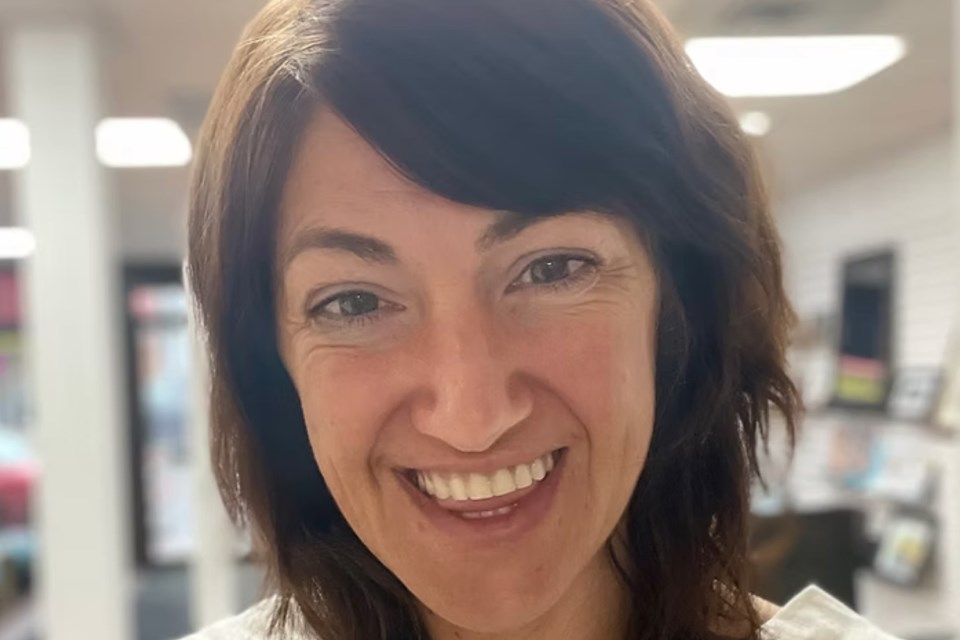As many area residents as possible are encouraged to take part in a new provincial government survey aimed at gathering input regarding the federal medical assistance in dying (MAID) program, says Mary Marshall, the executive director of Mountain View Hospice Society in Central Alberta.
“I think it is good idea for as many people as possible to take part in the survey and offer their perspectives,” Marshall told the Albertan. “I believe everybody should take the survey to provide feedback to our government.
“It’s an important issue. I think a lot of different perspectives need to be considered. It is a very controversial topic and it’s becoming more and more of a conversation.
"The more people’s opinions that they can gather data from is probably going to be the most beneficial.”
MAID is a process that allows an eligible person to receive assistance from a medical practitioner in ending life.
Through the survey initiative the provincial government is reviewing how MAID is regulated to “ensure that is a consistent process as well as oversight that protects vulnerable Albertans, specifically those living with disabilities or suffering form mental health challenges,” Mickey Amery, minister of Justice and Attorney General, said in a release announcing the project last week.
As well as the online survey, the province will be engaging with various stakeholders, including academics, medial associations, public bodies, religious organizations, regulatory bodies, advocacy groups and others, he said.
Feedback gathered through the initiative will “help inform Alberta’s government’s planning and policy decision-making, including potential legislative changes regarding MAID in Alberta,” he said.
The survey’s preamble states that possible changes to processes, procedures, oversight, and protections that could result from the new survey initiative include the creation of a new public agency and legislation to provide oversight, the creation of a MAID decision dispute mechanism for families and eligible others, and limitations on criteria for MAID eligibility.
In February the federal government paused MAID eligibility for individuals with a mental illness as their sole underlying medical condition until March 2027.
Jason Nixon is the Sundre-area MLA and minster for Seniors, Community and Social Services.
“Seniors will be among the groups consulted in this engagement,” Nixon said in a statement provided to the Albertan. “Alberta’s government is reviewing the province’s MAID processes and regulatory framework to ensure Albertans can rely on protective oversight, particularly those living with disabilities and suffering from mental health challenges.
“Eligibility in MAID currently includes the requirement that the person is suffering from a serious and permanent medical condition, and our government does not support expanding MAID eligibility to include those facing depression or mental illness.”
Asked if she had any comment on the provincial government not being in favour of expanding MAID to include mental health and depression cases, Marshall said, “My own personal opinion is that I do think that with people suffering from depression and mental health that safety needs to be a priority.
“Some of these things are not long term for people, so they could work their way through it with access to alternatives. I do believe that safety should be the first priority and there should be access to alternatives and I think it needs to be approached with empathy and respect.
“There are alternatives that can support people to live a health and fulfilled life.”
Marshall also provided a written statement to the Albertan: “I support the individuals right to choose by carefully regulating access to MAID for individuals with mental illness, provided that:
• Robust safeguards are in place to ensure the decision is fully informed, voluntary, and free from external pressures.
• Comprehensive assessments are conducted by qualified professionals to evaluate the person's mental state and capacity for decision-making.
• Accessible alternatives are available, such as improved mental health care, counselling, social supports, and community resources, ensuring MAID is not sought due to a lack of options.
• Empathy and Respect: Decisions about MAID should be guided by compassion, with a focus on the dignity and well-being of those seeking it. This means understanding their suffering while ensuring that support systems are available to help them find hope and meaning where possible.”
The Mountain View Hospice Society operates two hospice suites at Seasons Encore in Olds.
The online survey can be found at alberta.ca.
Fast facts
According to the federal government’s most recent report on MAID, Fourth annual report on Medical Assistance in Dying in Canada 2022:
• In 2022, there were 13,241 MAID provisions reported in Canada, accounting for 4.1 per cent of all deaths in Canada.
• The number of cases of MAID in 2022 represents a growth rate of 31.2 per cent over 2021. All provinces except Manitoba and the Yukon continue to experience a steady year-over-year growth in 2022.
• Cancer (63.0 per cent) is the most cited underlying medical condition among MAID provisions in 2022, down from 65.6 per cent in 2021 and from a high of 69.1 per cent in 2020. This is followed by cardiovascular conditions (18.8 per cent), other conditions (14.9 per cent), respiratory conditions (13.2 per cent) and neurological conditions (12.6 per cent).
• In 2022, MAID practitioners reported that the majority of MAID recipients (77.6 per cent) had received palliative care, a level similar to the three previous years. Of those who received palliative care, 49.9 per cent received it for a month or more, similar to the level reported in 2021. Of the MAID recipients who did not receive palliative care (19.6 per cent), 87.5 per cent had access to these services.




